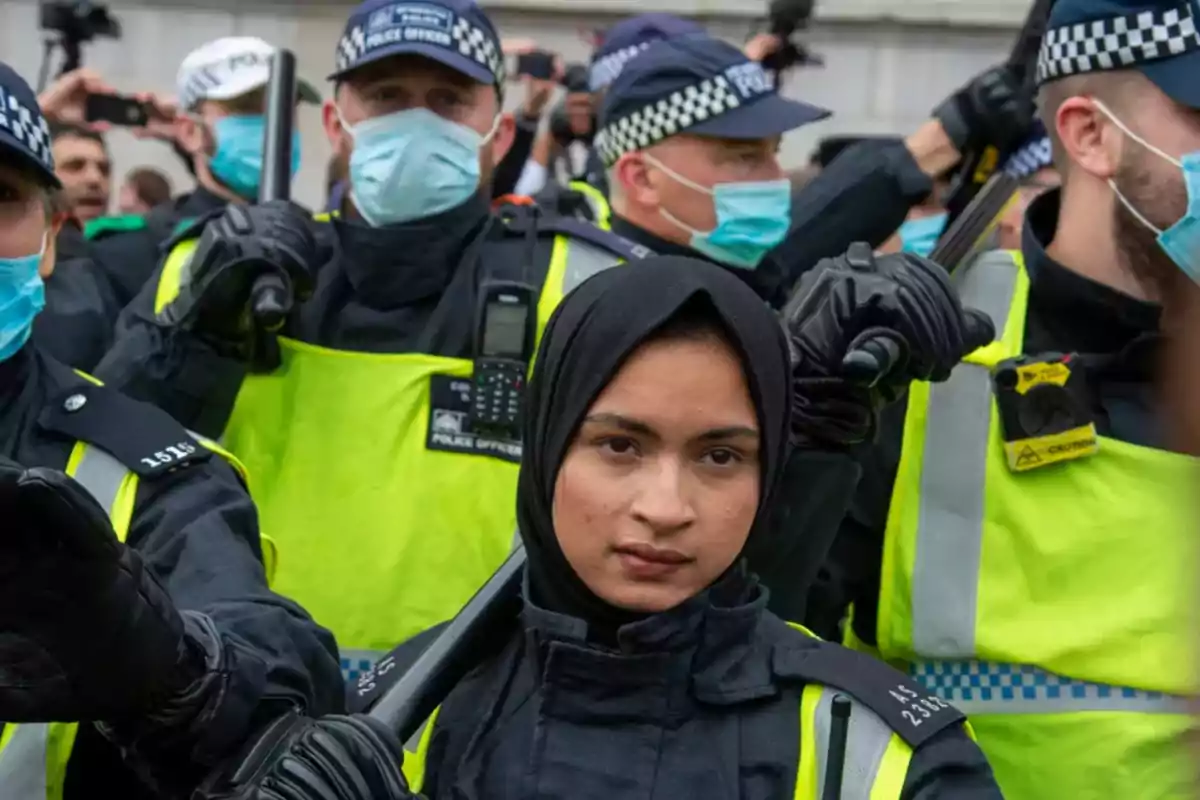
British police arrested thousands of people for posting messages on social media
In 2023, security forces carried out 12,183 arrests due to 'offensive' posts on social media
In an act worthy of a dictatorship, the security forces of the United Kingdom are carrying out more than 30 daily arrests due to posts considered "offensive" on social networks and other digital platforms.
Thousands of people are being detained and investigated for sending messages that cause "annoyance", "inconvenience" or "anxiety" to others via the Internet, phone calls, or mail.
According to arrest data obtained by The Times, the British police make approximately 12,000 annual arrests under Article 127 of the Communications Act 2003 and Article 1 of the Malicious Communications Act 1988.
These regulations penalize the sending of messages that may cause distress, either for being "grossly offensive" or for containing "indecent, obscene, or threatening" material disseminated through electronic communication networks.

During 2023, 37 different police forces made 12,183 arrests, which equates to about 33 per day. This figure represents an increase of almost 58% compared to the pre-pandemic period. In 2019, there were 7,734 arrests.
The figures have caused concern among civil rights organizations, who argue that the authorities are exercising excessive surveillance over the Internet and compromising freedom of expression by enforcing authoritarian communication laws.
There are various reasons why many arrests do not end in convictions, including out-of-court settlements. However, the most common reason is the lack of sufficient evidence, especially when the victim refuses to cooperate or proceed with legal actions.
Last week, The Times revealed that Hertfordshire police deployed six officers to arrest a couple and keep them locked up for eight hours, after their child's primary school complained about the number of emails sent and certain comments considered "offensive" in a WhatsApp group.
Maxie Allen, 50, and Rosalind Levine, 46, were questioned on suspicion of "harassment", "malicious communications", and "public order disturbance" in the school environment. After a five-week investigation, the authorities determined that no criminal action was necessary.

One of the officers also noted that even elected representatives could be considered "suspects of harassment" if they continued to show support for the couple.
Andy Prophet, chief of Hertfordshire police, supported the authoritarian actions of his officers, claiming that "prior warnings" had been issued and that everything was done according to the law. However, he acknowledged that "in hindsight, we could have achieved the same objectives differently".
The end of freedom of expression
Meanwhile, Jake Hurfurt, director of investigations at Big Brother Watch, a civil rights organization, described the increase in arrests for offenses related to social media posts as "deeply alarming".
He stated: "The police seem to be investing a huge amount of time in arresting people for posting content online that, while it may be offensive, is not a crime. The repeated use of ambiguous communication laws represents a direct threat to freedom of expression on the Internet".
He added: "Security forces must remember that freedom of expression is an essential right and should only intervene in cases where it is truly necessary. Unnecessary arrests for social media posts create an intimidating effect that could undermine our democratic culture".
Regarding the arrests, he assured: "These data are extremely concerning, and the Home Secretary should order an independent review of how arrests for online expressions are being conducted and the current state of freedom of expression in the United Kingdom".
More posts: